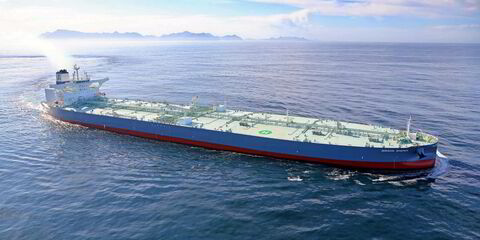Veteran shipowner George Procopiou stole the limelight in a panel of top Greek owners at Posidonia on Monday, delivering memorable punchlines on everything from the state of the shipping markets to foreign policy in the Near East.
“Buy anything that is a ship, I would say anything that floats, because almost everything is very cheap now,” the principal of Dynacom and Dynagas told a Capital Link conference in an effort to spread confidence among hundreds of shipping executives in the audience.
“The market will come back on any type of vessel and you must be there,” Procopiou added, urging participants to the conference to embrace market volatility.
“Shipping is the most stable business because it’s stable in its instability: the instability and the volatility is how you can make profits,” he said, recommending the audience to pay no heed to what bankers or analysts are saying.
“No analyst, nobody, knows anything. Three years ago, when I had problems, I was with 25 bankers in a meeting and one of them, to tease me, asked: ‘If I gave you $150m now, what would you do with it?’ I said ‘I’d buy as many VLCCs as I can’ – everybody was laughing”.
Question mark over tankers
Going into details, he said that now was the time for bulker owners to buy secondhand ships, but he was less certain about tankers.
“Tankers is a question mark. If you ask me, I believe very much the world will continue to need oil although gas is competing very much. I don’t know what will happen. It’s in the balance,” he said.
Procopiou said he expected the global economy to revive, helped by central bank efforts to boost global liquidity by way of zero interest rates, quantitative easing and low energy prices.
“It’s like an inflatable boat: you pump and pump and nothing happens, you think there’s a hole somewhere, and suddenly the boat goes up and becomes very strong. I believe we’re in the late stages of this pumping up,” he said. “We are heading for better markets”.
Things might have already been better if the “export of democracy” did not “ruin all the countries around the Mediterranean,” eroding consumers’ buying power there, Procopiou added.
European lawmakers wishing to impose new taxes on Greek shipowners did not escape Procopiou’s criticism, and nor did Greek politicians who should, in his view, defend the industry with the same zeal they were defending staple Greek products.
“Protecting ouzo, feta and olive oil is very important, but they all together do less than one ship. Shipping is much more important,” he said.



